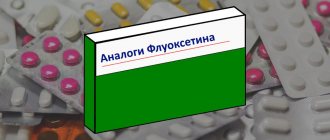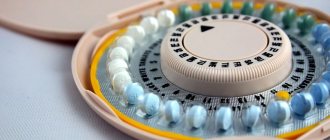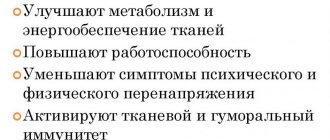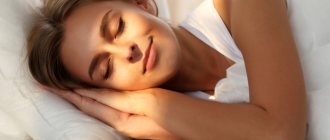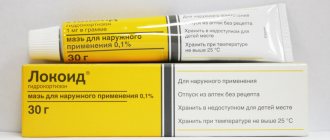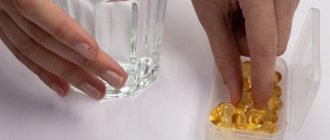Pharmacodynamics
Noopept® has nootropic and neuroprotective properties. Improves learning ability and memory, acting on all phases of processing: initial information processing, consolidation, retrieval. Prevents the development of amnesia caused by electric shock, blockade of central cholinergic structures, glutamatergic receptor systems, and deprivation of the paradoxical phase of sleep.
The neuroprotective (protective) effect of the drug Noopept® is manifested in increasing the resistance of brain tissue to damaging influences (trauma, hypoxia, electroconvulsive, toxic) and reducing the degree of damage to brain neurons. The drug reduces the volume of the lesion in a thrombotic stroke model and prevents the death of neurons in cultured tissue of the cerebral cortex and cerebellum exposed to neurotoxic concentrations of glutamate and free radical oxygen.
Noopept® has an antioxidant effect, blocks voltage-gated calcium channels in neurons, weakening the neurotoxic effect of excess calcium, improves the rheological properties of blood, having antiaggregation, fibrinolytic, and anticoagulant properties.
The nootropic effect of the drug is associated with the formation of cycloprolylglycine, which is similar in structure to the endogenous cyclic dipeptide, which has antiamnestic activity, as well as the presence of a choline-positive effect.
Noopept® increases the amplitude of the transcallosal response, facilitating associative connections between the cerebral hemispheres at the level of cortical structures. Helps restore memory and other cognitive functions impaired as a result of damaging influences - brain injury, local and global ischemia, prenatal damage (alcohol, hypoxia).
The therapeutic effect of the drug in patients with organic disorders of the central nervous system manifests itself starting from 5–7 days of treatment. Initially, the anxiolytic and mild stimulating effects present in the spectrum of activity of the drug Noopept® are realized, manifested in the reduction or disappearance of anxiety, increased irritability, affective lability, and sleep disturbances. After 14–20 days of therapy, a positive effect of the drug on cognitive functions, parameters of attention and memory is revealed.
Noopept® has a vegetative-normalizing effect, helps reduce headaches, orthostatic disorders, and tachycardia.
When discontinuing the drug, no withdrawal syndrome is observed. Does not have a damaging effect on internal organs; does not lead to changes in the cellular composition of the blood and biochemical parameters of blood and urine; does not have immunotoxic, teratogenic effects, does not exhibit mutagenic properties.
I am depressed!
This can often be heard from friends or read on the forum. But, as a rule, the person who makes such statements is mistaken. After all, what is meant by “depression” in a colloquial environment? Usually this simply means a short-term deterioration in mood, irritability, fatigue under the influence of circumstances. Sometimes a person is just having a “bad day” or “got off on the wrong foot” and they call it depression.
Nowadays, people are constantly faced with stress: overload at work, a frantic pace of life, inflated demands on themselves, a huge amount of information that flows from all sources. It is not surprising that many people cannot cope with so many stressors, and this can manifest itself in various symptoms:
- anxiety;
- irritability;
- fatigue;
- sleep disorders;
- obsessive thoughts;
- panic attacks.
If these symptoms are short-lived and go away on their own, do not be too upset. In most cases, just a good rest will help defeat them. But sometimes a vacation is not enough, and the body needs a little help. It is very important to choose the right medications for this.
Pharmacokinetics
N-phenylacetyl-L-prolylglycine ethyl ester, absorbed in the gastrointestinal tract, enters the systemic circulation unchanged, penetrates the BBB, and is determined in the brain in higher concentrations than in the blood. Tmax averages 15 minutes. T1/2 from blood plasma - 0.38 hours. Partially stored unchanged, partially metabolized with the formation of phenylacetic acid, phenylacetylproline and cycloprolylglycine. It has high relative bioavailability (99.7%), does not accumulate in the body, and does not cause drug dependence.
What is depression really?
This is a long-term (2 weeks or more) pronounced decrease in mood, which is accompanied by several additional symptoms: decreased activity, slower mental activity, lack of joy in life. That is, if you are no longer touched by the usual joys - hobbies, family, get-togethers with friends, then this is a reason to think, monitor your condition and, perhaps, consult a doctor.
If your usual joys no longer touch you, then this is a reason to think about it and, perhaps, consult a doctor.
True depression is a serious and often severe illness that requires mandatory treatment by a psychiatrist with the prescription of special medications.
What to do?
There are a number of drugs that are sold without a prescription. They are not effective for clinical depression, but they will help cope with stress, short-term sleep disorders and irritability. With their help, you can try to ease your psycho-emotional state a little:
- Glycine is one of the most popular remedies. Prescribed starting from childhood, for stress, fatigue, emotional overstrain. Sometimes effective for minor sleep disorders.
- Afobazol . It has an anti-anxiety effect, eliminates feelings of fear, tearfulness, and irritability. It is used in the treatment of vegetative-vascular dystonia and even in alcoholism, to alleviate the symptoms of alcohol withdrawal. Not addictive. Please note that it is contraindicated for children under 18 years of age.
- Novo-passit . Quite a strong sedative for nervousness and irritability. Effective in reducing concentration, memory, and fatigue. Helps restore the nervous system during periods of increased stress.
Over-the-counter medications will not cope with clinical depression, but they can alleviate the psycho-emotional state.
- Stressitis . Well calms, relieves irritability, anxiety, improves sleep. During the treatment period, driving and other activities that require increased concentration are not recommended.
- Persen is a herbal medicine. Contains extracts of valerian, lemon balm and peppermint. Has a calming and anti-anxiety effect. It helps well with increased excitability, emotional lability, and tearfulness. Can be used in the complex treatment of mild anxiety and depressive disorders, facilitating the withdrawal of potent drugs.
- Magne B6 . Increases the body's resistance to stress. Magnesium deficiency can lead to an imbalance in the nervous system, irritability, and sleep disturbances, so Magne B6 has a positive effect in these cases.
- Tenoten . It has an anti-anxiety, calming, anti-asthenic effect, helps cope with stress and psycho-emotional stress. Relieves irritability and tension. Can be used for neurotic conditions.
When should you see a doctor?
- If a decrease in mood has been observed for more than two weeks, and attempts at self-treatment have been ineffective.
- If you have thoughts about not wanting to live or suicidal thoughts.
- If a depressive state significantly disrupts the usual course of life: you cannot work, fully communicate with your family, or enjoy what previously brought joy.
You can contact a psychiatrist confidentially. Information about the fact of treatment, not to mention the diagnosis and treatment, is a medical secret: it is not reported to work, it is not disclosed. It is better to diagnose depression on time and begin treatment than to bring it to advanced stages.
Literature
- BAUER M., PFENNIG A., SEVERUS E., WYBROW P.S., ANGST J., MÜLLER H.-YU CLINICAL RECOMMENDATIONS OF THE WORLD FEDERATION OF SOCIETIES OF BIOLOGICAL PSYCHIATRY FOR BIOLOGICAL THERAPY OF UNIPOLAR DEPRESSIVE DISORDERS PART 1: ACUTE AND CONTINUED TREATMENT OF UNIPOLAR DEPRESSIVE DISORDERS AS OF 2013//MODERN THERAPY OF MENTAL DISORDERS Number: 4 Year: 2015 Pages: 33-40
- Antidepressant therapy and other treatments for depressive disorders. Report of the CINP Working Group based on a review of the evidence. M., 2008; 215 p.
- Baklanov V.V., Anikeeva A.G., Karataeva Zh.E. METHODOLOGICAL RECOMMENDATIONS FOR DIAGNOSIS AND TREATMENT OF DEPRESSION IN HEALTH INSTITUTIONS PROVIDING PRIMARY HEALTH CARE TO THE POPULATION Syktyvkar, 2011
What drugs are used to treat depression?
They have a common name - antidepressants. It is worth noting that in recent years the indications for the prescription of antidepressants have expanded significantly. Numerous studies have been conducted that have shown the effectiveness of antidepressants not only for depression, but also for anxiety, sleep disorders (insomnia), neuroses and even neuropathic pain. Today, drugs from different groups of antidepressants are widely prescribed by psychiatrists, neurologists and even therapists.
The most commonly used drugs are two groups.
Tricyclic antidepressants
These are old drugs that are considered the most powerful:
- Amitriptyline is a drug with strong sedative and powerful antidepressant effects. In large doses it is used to treat severe depression, in small doses for milder disorders. It relieves anxiety well and has a hypnotic effect.
- Anafranil is a drug of balanced action, usually easier to tolerate than amitriptyline, and also relieves anxiety well. Prescribed for the treatment of depression from mild to severe, various anxiety disorders.
- Melipramine has a stimulating effect and is used to treat apathetic depression.
Selective serotonin reuptake inhibitors (SSRIs)
This is a more modern group of drugs. Their advantages are good tolerability and few or no side effects.
Often from this group are assigned:
- Fevarin has anti-anxiety and good antidepressant effects. With long-term use, it normalizes sleep if it has been disturbed.
- Zoloft is a fairly strong daytime antidepressant. Relieves anxiety and obsessive thoughts without causing drowsiness.
- Paxil relieves anxiety and is often prescribed to treat panic attacks.
There are many more modern antidepressants that have few side effects and are well tolerated:
- Ixel;
- Velaxin;
- Valdoxan;
- Trittico;
- Cymbalta and others.
But strong antidepressants are not sold without a prescription . They can only be prescribed by a doctor: a psychiatrist, a neurologist, or sometimes a therapist.
Why can't you take antidepressants without a prescription?
- Only a doctor can assess the risk of side effects for a particular patient.
- Different antidepressants have different nuances of therapeutic action. If the medicine is chosen incorrectly, at best it will not help, at worst it will harm.
- Dose selection is carried out individually. If you increase the dose too quickly on your own, you can experience a lot of unpleasant consequences.
- Cancellation should also be carried out gradually and under the supervision of a doctor. Otherwise, you risk withdrawal symptoms.
